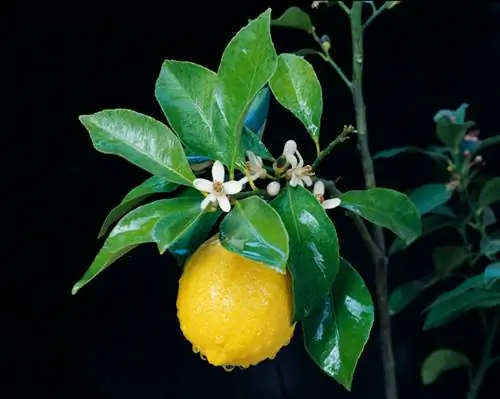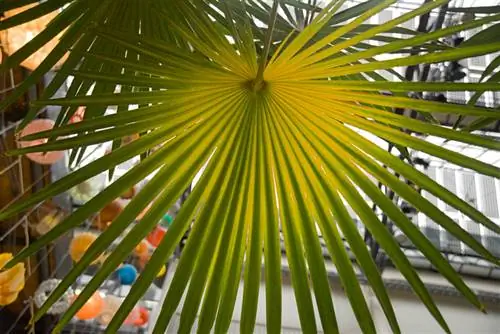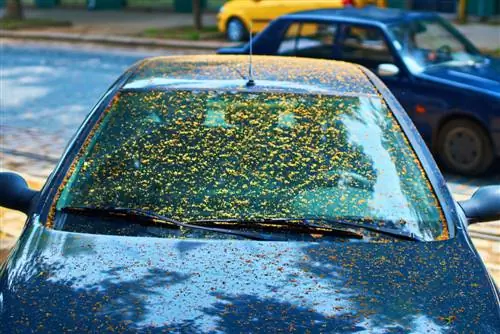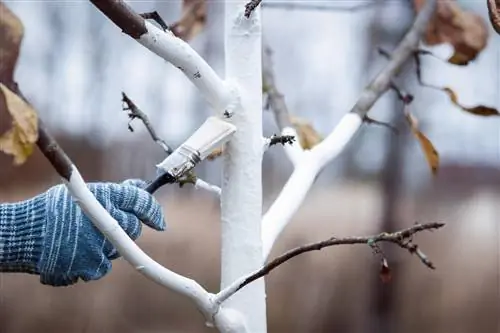- Author admin leonars@hobbygardeners.com.
- Public 2023-12-16 16:46.
- Last modified 2025-01-23 11:20.
You may notice sticky droplets on your lemon tree, especially at the end of the winter break or at the beginning of the vegetation phase. The sticky, resinous liquid is usually found on the undersides of leaves, but can also appear on shoots and branches. Not only does the lemon tree “stick” to a greater or lesser extent, but also the surrounding floor.
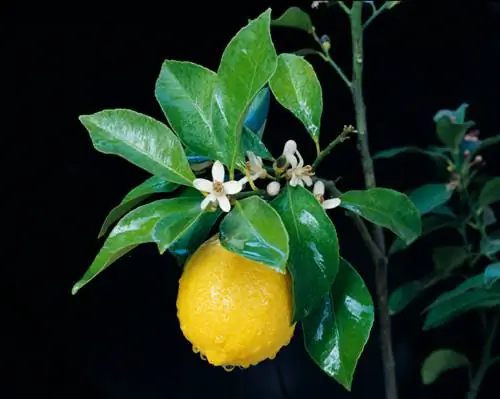
Why is my lemon tree sticking and what can I do about it?
If a lemon tree sticks, it is honeydew, the excretions of plant lice such as scale insects, mealybugs or mealybugs. You should combat these insects by rinsing the tree, using soapy water, or soaking it several times in lukewarm water.
The cause is often scale insects
The sticky droplets are the excretions of plant lice; scale insects are usually the cause. In some cases, however, mealybugs or mealybugs are also behind it. The animals' excreta is called honeydew because it is a solution that primarily contains sugar. The animals can throw honeydew up to 15 centimeters away, which is why sticky stains on the floor are not uncommon. A sooty mold fungus also likes to settle on these excretions, which covers the leaf black and thus prevents it from assimilating. However, the sooty mold can be easily washed off with water.
What are scale insects or mealybugs and mealybugs?
Scale insects usually sit along the pathways on the undersides of leaves and on the shoots. Adult animals are immobile; they sit under a wood-like shield about two by three millimeters in size. Only the white larvae, which can hardly be seen with the naked eye, can move and also prefer to attack neighboring plants. The whitish to pink mealybugs and mealybugs grow to around four millimeters in size and are also found mainly on the undersides of leaves and shoot tips. All species are sap-sucking insects that must be removed - they rob the plant of a lot of energy and can also multiply explosively.
Watch out for ants
The first indication of a louse infestation can be a noticeable number of ants - especially in lemon trees that are outdoors. As soon as the little animals purposefully inhabit your lemon, scale insects are often behind them. The ants love the sweet excretions of the lice and will eagerly strive to take good care of and defend the little creatures. This is why an ant infestation is often linked to a previously undetected louse infestation.
Fighting plant lice
The simplest method of combating scale insects and other plant insects is the chemical club. In this case, however, you can no longer use any fruits that may be present, and damage to the plant itself cannot be ruled out. It would be better to rinse the plant vigorously in the shower - but make sure to cover the pot well with the potting soil or put a plastic bag over it so that too much water doesn't get into it. Soapy water also usually has good effects. You should repeat the treatment several times every few days to kill all eggs and larvae.
Tips & Tricks
You can also simply immerse smaller lemon trees upside down in a bucket of lukewarm water for a few hours - this is guaranteed to kill the scale insects (and other predators).

